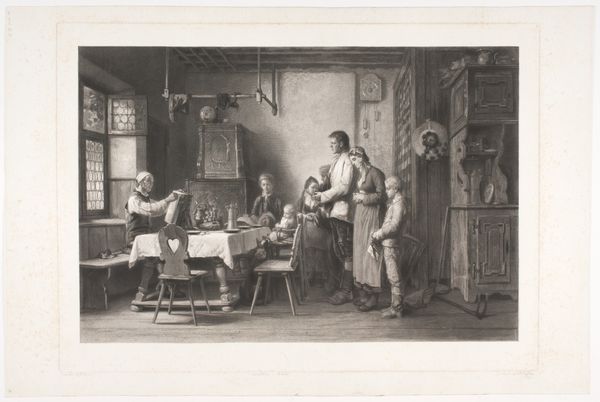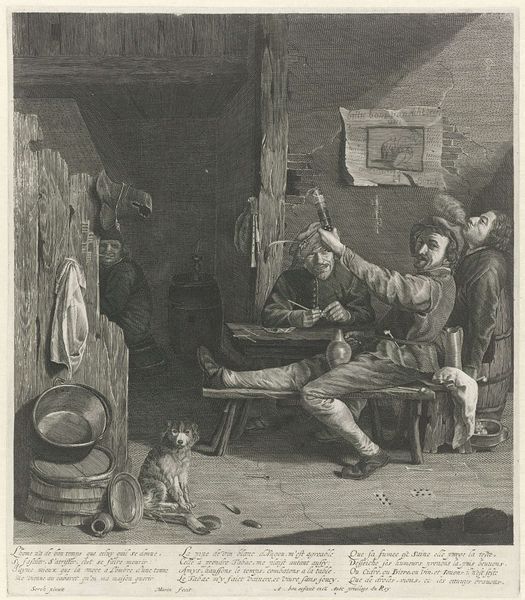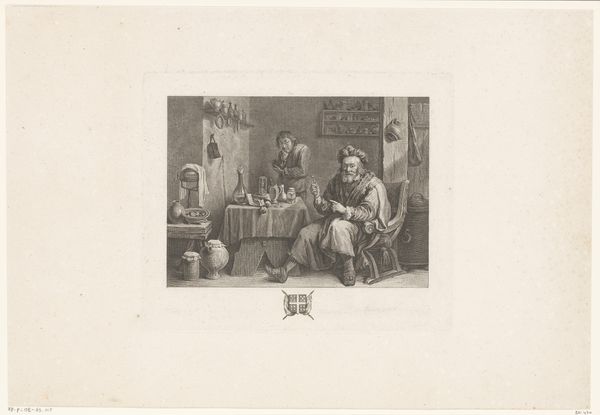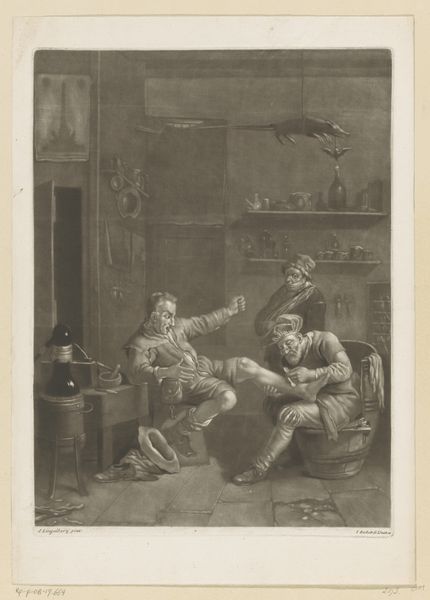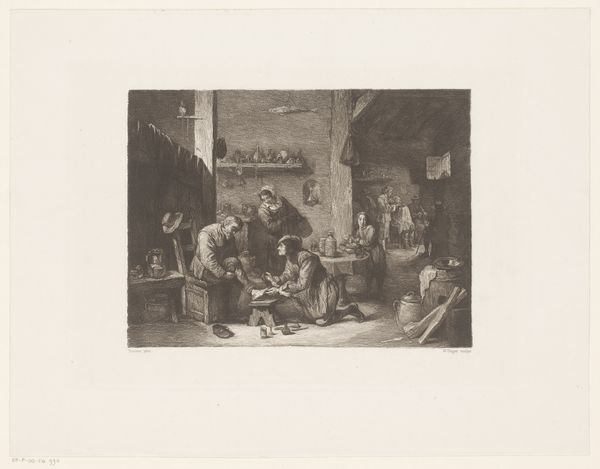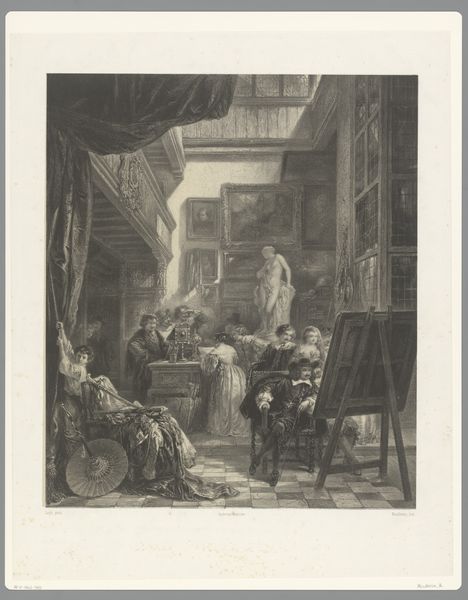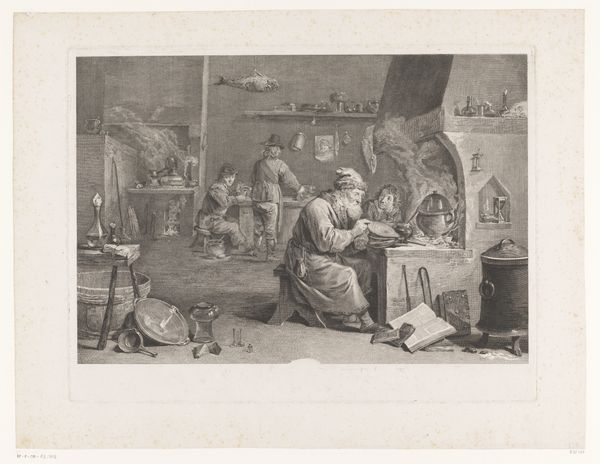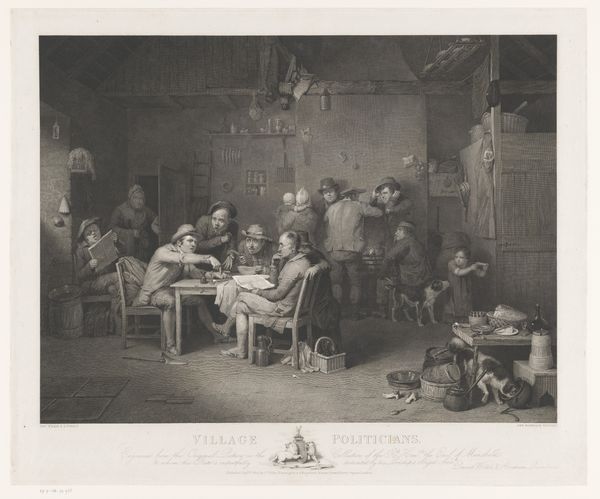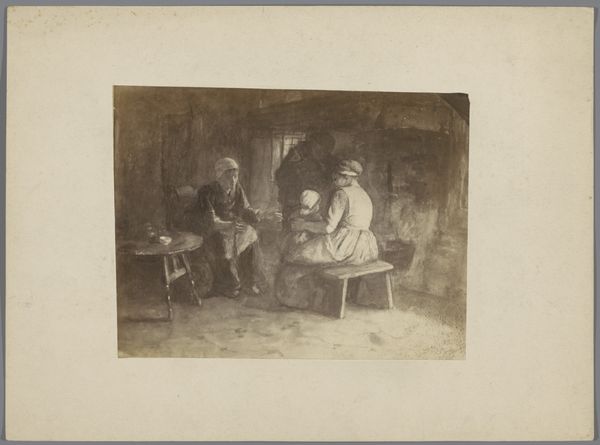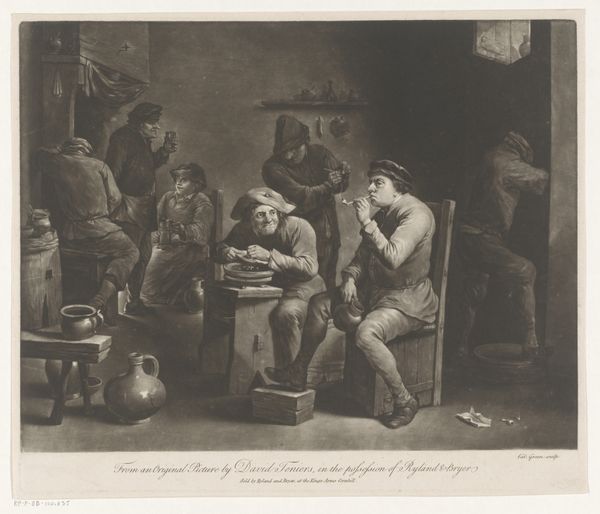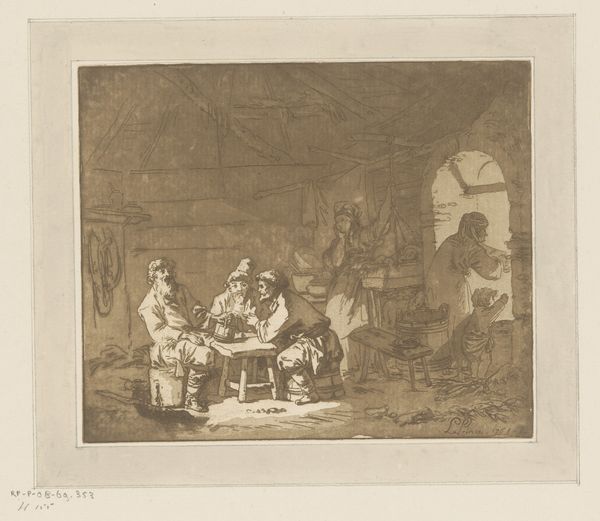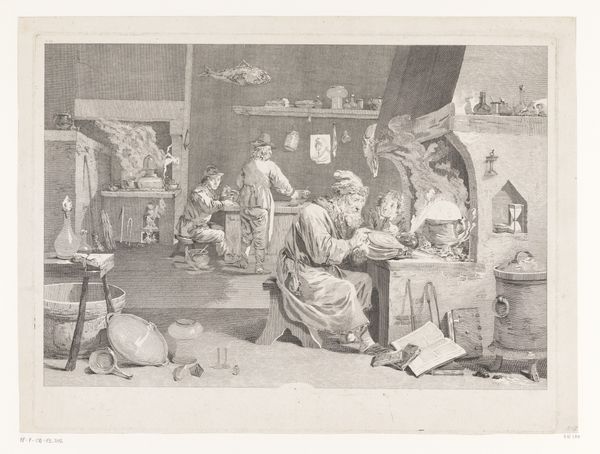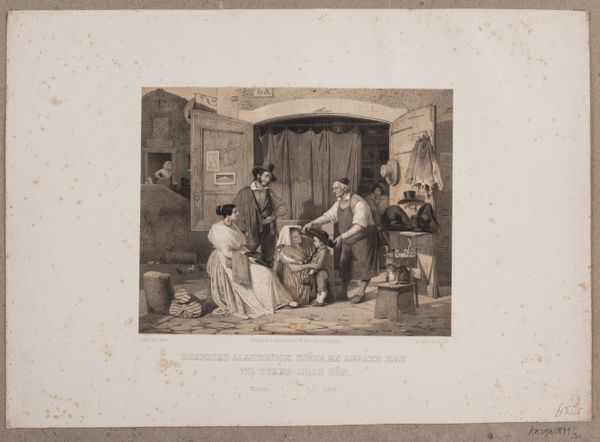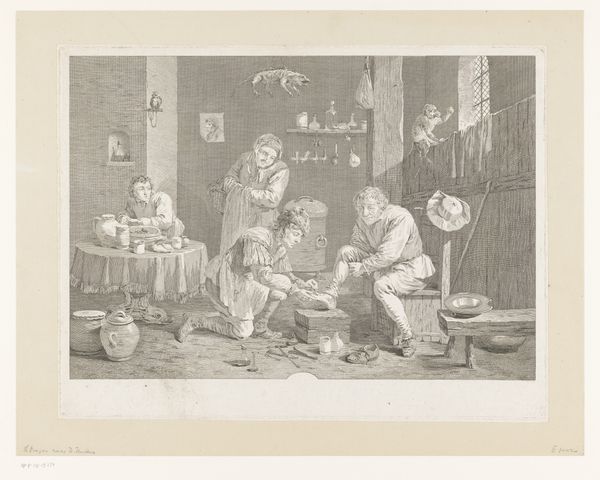
print, engraving
#
narrative-art
# print
#
historical photography
#
genre-painting
#
history-painting
#
academic-art
#
engraving
#
realism
Dimensions: height 458 mm, width 383 mm
Copyright: Rijks Museum: Open Domain
This print, "Kinderen verstoppen zich voor een jongen", was made by Joseph Schubert in the 19th century. It's not just about the charming scene of children playing hide and seek, but also about the artistry of reproduction. The process used to create the print, likely a form of engraving or etching, involved meticulous handwork to transfer an image onto a metal plate. The density of the lines and the depth of the cuts would determine how the image was rendered on paper, creating subtle gradations of light and shadow. Think about the labor involved in producing prints like this. Before photography, such prints were the primary way that images circulated. In that sense, prints are intimately tied to social issues of labor, politics and consumption; they allowed art and information to be disseminated widely, but also depended on skilled artisans, who have often been overlooked in art history. Looking at this print, we can appreciate not only the subject matter but also the complex interplay of materials, making, and context, which challenges traditional distinctions between fine art and craft.
Comments
No comments
Be the first to comment and join the conversation on the ultimate creative platform.
